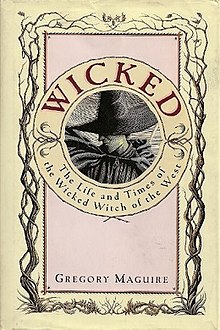
Princess Ozma is a fictional character from the Land of Oz, created by American author L. Frank Baum. She appears for the first time in the second Oz book, The Marvelous Land of Oz (1904), and in every Oz book thereafter.

Glinda is a fictional character created by L. Frank Baum for his Oz novels. She first appears in Baum's 1900 children's classic The Wonderful Wizard of Oz, and is the most powerful sorceress in the Land of Oz, ruler of the Quadling Country South of the Emerald City, and protector of Princess Ozma.

The Land of Oz is a magical country introduced in the 1900 children's novel The Wonderful Wizard of Oz written by L. Frank Baum and illustrated by W. W. Denslow.

The Scarecrow is a character in the fictional Land of Oz created by American author L. Frank Baum and illustrator W.W. Denslow. In his first appearance, the Scarecrow reveals that he lacks a brain and desires above all else to have one. In reality, he is only two days old and merely naïve. Throughout the course of the novel, he proves to have the brains he seeks and is later recognized as "the wisest man in all of Oz," although he continues to credit the Wizard for them. He is, however, wise enough to know his own limitations and all too happy to hand the rulership of Oz to Princess Ozma and become one of her trusted advisors, though he typically spends more time having fun than advising.
The Wicked Witch of the West is a fictional character who appears in the classic children's novel The Wonderful Wizard of Oz (1900), created by American author L. Frank Baum. In Baum's subsequent Oz novels, it is the Nome King who is the principal villain; the Wicked Witch of the West is rarely even referred to again after her death in the first book.

The Wicked Witch of the East is a fictional character created by American author L. Frank Baum. She is a crucial character but appears only briefly in Baum's classic children's series of Oz novels, most notably The Wonderful Wizard of Oz (1900).

Elphaba Thropp is the protagonist in Wicked: The Life and Times of the Wicked Witch of the West by Gregory Maguire, and in its musical theatre adaptation Wicked. The character is identified with the Wicked Witch of the West from L. Frank Baum's 1900 novel The Wonderful Wizard of Oz.
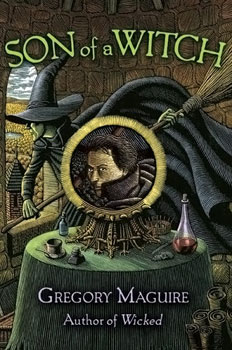
Son of a Witch (2005) is a fantasy novel by American writer Gregory Maguire. The book is Maguire’s fifth revisionist story and the second set in the land of Oz originally conceived by L. Frank Baum. Son of a Witch continues the story after the fall from power of the Wizard of Oz and the death of Elphaba by recounting the life of Elphaba’s son, Liir. The book is dedicated to the cast of the Broadway musical version of Wicked.
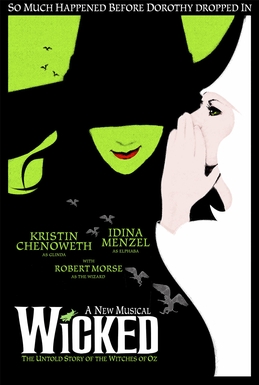
Wicked is a musical with music and lyrics by Stephen Schwartz and a book by Winnie Holzman. It is a loose adaptation of the 1995 Gregory Maguire novel Wicked: The Life and Times of the Wicked Witch of the West, which is in turn based on L. Frank Baum's 1900 novel The Wonderful Wizard of Oz and its 1939 Metro-Goldwyn-Mayer film adaptation.

The Good Witch of the North, sometimes named Locasta or Tattypoo, is a fictional character in the Land of Oz, created by American author L. Frank Baum. She is the elderly and mild-mannered Ruler of the Gillikin Country. Her only significant appearance in Baum's work is in Chapter 2 of The Wonderful Wizard of Oz (1900), in which she introduces Dorothy Gale to Oz and sends her to meet the Wizard, after placing a protective kiss on her forehead. She makes a brief cameo appearance at Princess Ozma's birthday party in The Road to Oz (1909), but is otherwise only mentioned elsewhere in the series.
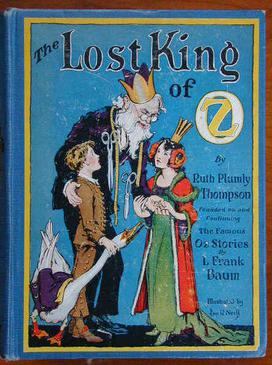
King Pastoria is a fictional character mentioned in the Oz books by American author L. Frank Baum. He was the rightful ruler and King of the undiscovered Land of Oz, but was mysteriously removed from his position when the Wizard of Oz unexpectedly came to the country and took the throne, proclaiming himself as the new dominant ruler of Oz. Shortly after, Pastoria's only child and heir, Princess Ozma, suddenly vanished, leaving not a single clue of her whereabouts.
The Wicked Years is a series of novels by Gregory Maguire that present a revisionist take on L. Frank Baum's The Wonderful Wizard of Oz, its 1939 film adaptation, and related books.
"The Wizard and I" is a musical number from the hit musical Wicked. It is primarily a solo number for the character of Elphaba, though the character Madame Morrible also sings in the introduction to the song.
"Dancing Through Life" is a musical number from the musical Wicked. It is sung between Fiyero, Elphaba and Glinda, Nessarose, and Boq, as well as other cast members.
"What Is This Feeling?" is a song from the 2003 musical Wicked. It is sung between Elphaba, Galinda, and the students at Shiz University, expressing their loathing for each other's contrasting personalities as newly-assigned roommates.
"I'm Not That Girl" is a showtune from the musical Wicked, based on the novel, "Wicked: The Life and Times of the Wicked Witch of the West", by Gregory Maguire. It was composed by Stephen Schwartz, originally recorded by Idina Menzel and Kristin Chenoweth (reprise) on November 10, 2003, and released on December 16, 2003. It is a solo sung by the main character of the show, Elphaba Thropp in the first act and Glinda in the reprise in the second act.
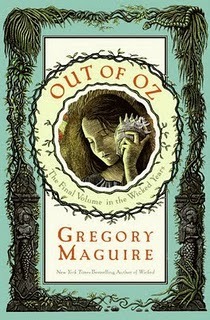
Out of Oz is the fourth and final novel in Gregory Maguire's The Wicked Years and was released on November 1, 2011. Out of Oz brings a conclusion to the narratives spread across The Wicked Years while providing a revisionist look at L. Frank Baum's Land of Oz incorporating elements from Baum's series as well as the 1939 film adaptation of the original novel. This novel presents an Oz in the middle of a civil war plagued with depression and adult situations, from the perspective of Rain, the young granddaughter of Elphaba Thropp, Maguire's reimagining of The Wicked Witch of the West.
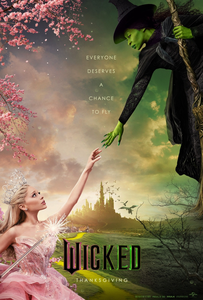
Wicked is an upcoming American musical fantasy film directed by Jon M. Chu and written by Winnie Holzman. It is the first of a two-part film adaptation of the stage musical of the same name by Stephen Schwartz and Holzman, which in turn was based on the 1995 novel of the same name by Gregory Maguire. The film stars Cynthia Erivo and Ariana Grande, with Michelle Yeoh, Jeff Goldblum, Jonathan Bailey, Ethan Slater, Marissa Bode, Bowen Yang, Bronwyn James, Keala Settle, and Peter Dinklage in supporting roles. Set in the Land of Oz, largely before Dorothy Gale's arrival from Kansas, the plot follows green-skinned Elphaba and her path to ultimately becoming the Wicked Witch of the West, alongside an unlikely friendship and later rivalry with a classmate who later becomes Glinda the Good.
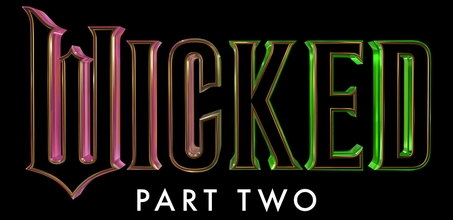
Wicked: Part Two is an upcoming American musical fantasy film directed by Jon M. Chu and written by Winnie Holzman. The sequel to Wicked (2024), it is the second of a two-part film adaptation of the stage musical of the same name by Stephen Schwartz and Holzman, which in turn was based on the 1995 novel of the same name by Gregory Maguire. The film stars Cynthia Erivo and Ariana Grande, with Michelle Yeoh, Jeff Goldblum, Jonathan Bailey, Ethan Slater, Marissa Bode, Bowen Yang, Bronwyn James, Keala Settle, and Peter Dinklage in supporting roles.
